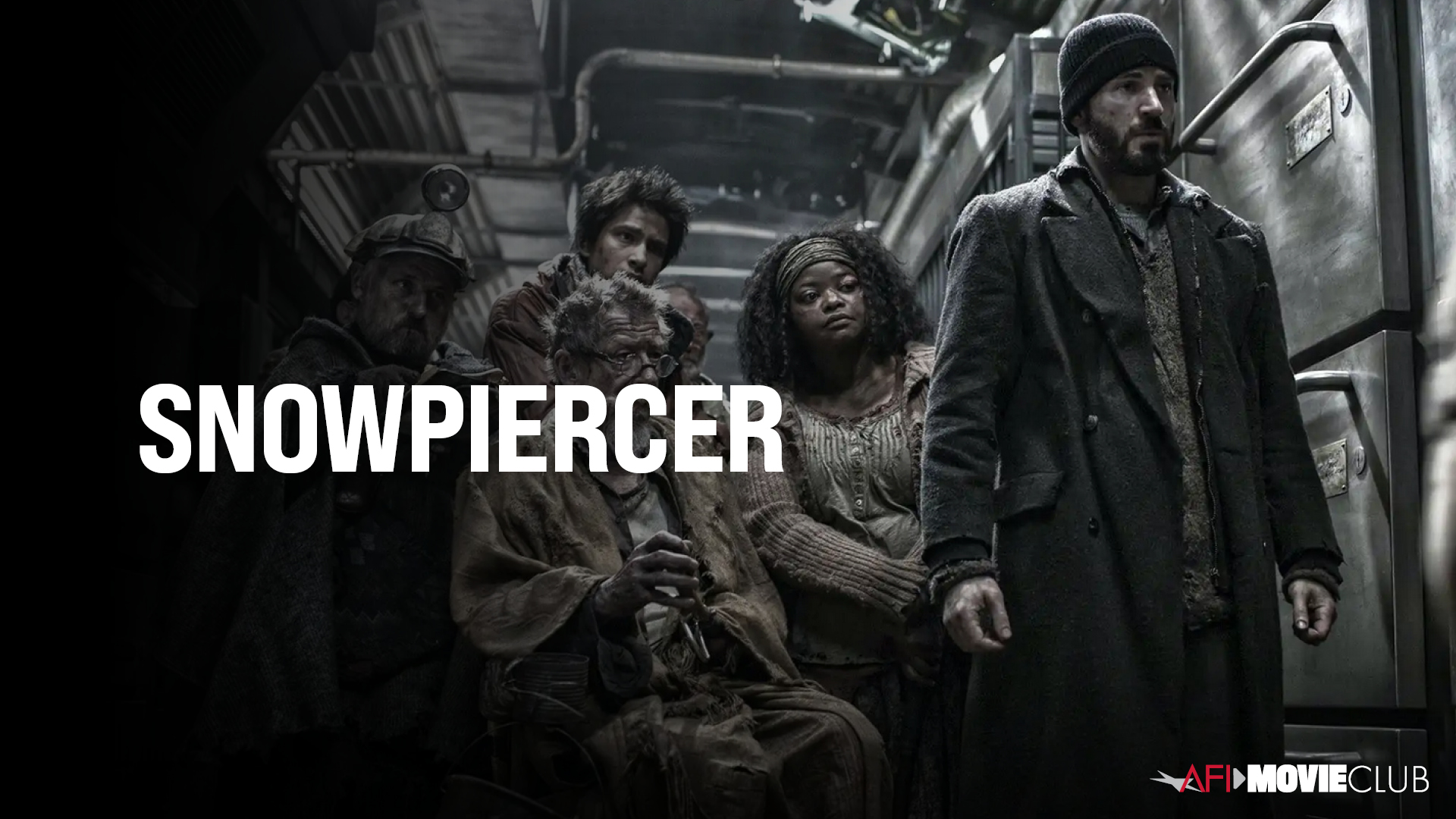SnowPiercer (2013)
"Snowpiercer," the 2013 dystopian science fiction film directed by Bong Joon-ho, presents a gripping and thought-provoking tale set in a desolate future where Earth has succumbed to a catastrophic global cooling event. As the planet becomes an icy wasteland, the last remnants of humanity survive aboard a colossal train called the Snowpiercer, perpetually circling the frozen world. However, the train is not just a means of survival; it has evolved into a microcosm of society with strict class divisions, where the privileged few inhabit the luxurious front compartments while the oppressed masses struggle for survival at the tail end.
The film centers around Curtis Everett (played by Chris Evans), a resilient and determined resident of the tail section. Curtis, along with his fellow tail-enders, endures squalor, hunger, and mistreatment from the train's armed guards, under the watchful eye of Mason (Tilda Swinton), an overbearing and grotesque spokesperson for the train's enigmatic creator, Wilford (Ed Harris).
As the film opens, Curtis and his mentor, Gilliam (John Hurt), decide to lead a rebellion against the oppressive system, seeking to overthrow the ruling elite and claim a more equitable existence for all passengers aboard the Snowpiercer. The revolt is not just a fight for physical freedom but also a quest for human dignity and justice. Their goal is to push their way to the front of the train, where the privileged class resides, and to seize control from Wilford.
Throughout the journey from the tail to the front of the train, the audience is introduced to a diverse array of characters, each representative of a different social stratum within the train's hierarchy. As Curtis and his allies progress through each compartment, the film masterfully unveils a series of symbolic and surrealistic vignettes that represent different facets of the peculiar society aboard the Snowpiercer.
The visual representation of the train's cars reflects the stark contrast between the affluent front and the impoverished tail section. The further the rebellion advances, the more opulent the interiors become. The disparity between the front and the tail is not merely physical but also a representation of the psychological and social distance that separates the classes.
In the first-class compartments, passengers indulge in decadent banquets and entertainment, oblivious to the suffering endured by their fellow passengers at the rear. This stark juxtaposition emphasizes the extreme social inequality that has persisted on the Snowpiercer for years.
As the rebellion moves forward, the tail-enders encounter resistance from the armed guards, trained fighters who will stop at nothing to prevent any disruption to the status quo. The ensuing battles are intense and visceral, portraying the brutal reality of the struggle for freedom against entrenched power.
Despite the hardships and sacrifices, the group manages to overcome numerous challenges, and as they progress through the train, their unity strengthens. Curtis finds himself at the helm of the rebellion, driven not only by a desire for justice but also by a dark secret from his past, which becomes a driving force in his journey.
In their ascent, the rebels face complex moral dilemmas that challenge their convictions and force them to confront the harsh realities of their choices. The journey evolves into an exploration of the human condition, exposing the extent to which people are capable of both cruelty and compassion under extreme circumstances.
Bong Joon-ho's masterful direction infuses the film with tension and emotion, blending action-packed sequences with introspective and philosophical moments. The storytelling is rich and layered, raising profound questions about the nature of humanity and the consequences of unchecked power.
One of the film's highlights is the character Mason, portrayed brilliantly by Tilda Swinton. Mason is a grotesque and authoritarian figure, embodying the perverse ideology of the ruling class. Swinton's portrayal is both entertaining and chilling, making her a standout character in the film.
As the rebellion nears its climactic confrontation with Wilford, the audience is treated to unexpected twists that challenge preconceived notions of good and evil. The film's thought-provoking ending leaves audiences with lingering questions, encouraging contemplation about the nature of humanity, power, and the cyclical nature of societal structures.
The performances of the ensemble cast are outstanding, with Chris Evans shining as Curtis, a complex and conflicted leader grappling with personal demons and the responsibility of leading a revolution. The diverse supporting cast, including John Hurt, Octavia Spencer, Jamie Bell, Song Kang-ho, and Ah-sung Ko, delivers memorable performances that contribute to the film's emotional depth and impact.
"Snowpiercer" received critical acclaim for its unique storytelling, imaginative world-building, and powerful social commentary. The film's exploration of class struggle and the consequences of unchecked power resonated with audiences, as did its visual creativity and unforgettable action sequences.
Furthermore, Bong Joon-ho's mastery in crafting the Snowpiercer's dystopian world further solidified his reputation as one of the most visionary filmmakers of his generation. The film's success propelled Bong's international acclaim, leading to even greater recognition with subsequent projects like "Parasite," which won the Palme d'Or at the Cannes Film Festival and the Academy Award for Best Picture.
In conclusion, "Snowpiercer" is a captivating and thought-provoking dystopian sci-fi film that delves into the complexities of human nature, the consequences of social inequality, and the struggle for justice and freedom. Bong Joon-ho's visionary direction, coupled with the exceptional performances of the cast, elevates the film to a powerful and resonant cinematic experience. The film's exploration of class divisions, the cyclical nature of society, and the cost of rebellion make it a standout in the science fiction genre, leaving a lasting impact on its viewers and solidifying its place as a modern classic in dystopian cinema.

Comments
Post a Comment